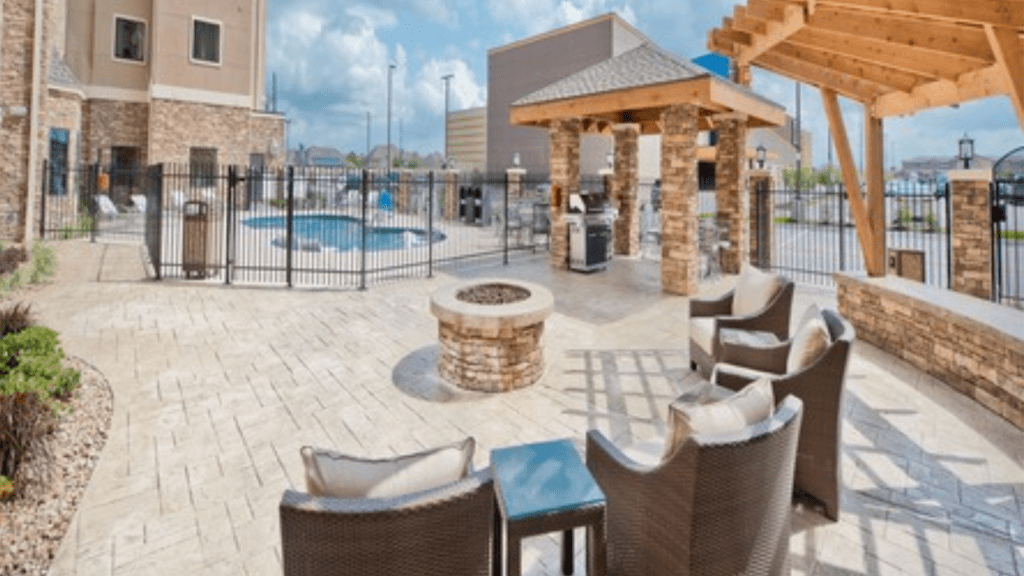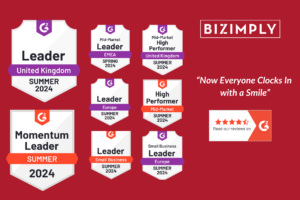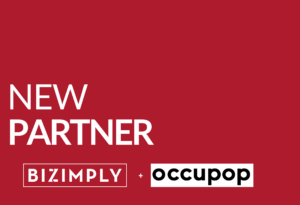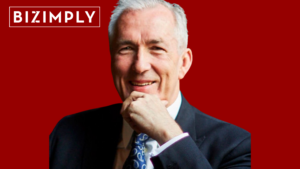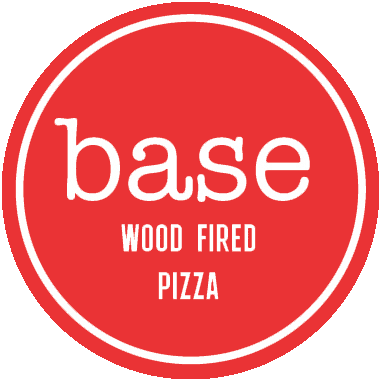“We’re trying to kick up a notch, and I always have a phrase: You can go on a budget; a lot of these really little nuances don’t have to cost a lot of money. They really don’t. You can get a lot of organic traction just by being excited. And again, it kind of goes back to FISH!. Choose your attitude. Show up for your people and just tell them how they can get involved because, more often than ever, they want to. Everybody’s craving human connection right now.”
Mel Miller
We’re back with our second BlogCast, our brand-new series on Bizimply’s blog!
🎧 A series in which we revisit Bizimply’s favourite episodes from The Hospitality Mavericks Podcast, hosted by Michael Tingsager. (Don’t forget to check out our first BlogCast on Visioning for Business!)
Today we’ll learn more about Empowering Creativity and the FISH! approach with Mel Miller, Pathfinder Hospitality‘s Director of Marketing and Business Development.
Miller shows in this captivating interview how putting the employee first is one of the most important aspects of hospitality businesses. And how it helped Pathfinder Hospitality become an award-winning hotel management organisation.
A creative and intriguing look at how transparency and people-first hospitality businesses may thrive even in difficult times.
Note: Miller’s most recent piece on the Pathfinder Hospitality Blog, “How to Start Tough Conversations to Retain Your Best Talent” is a must-read for all HR professionals and hospitality managers.
Main Highlights:
- Pathfinder’s utilisation of the FISH! strategy to staff retention
- Internal and External Guests
- Transparency with the Company numbers
- The empowerment of creativity
Journey into Hospitality: From entertainment to hotel management.
Miller starts sharing her elevator pitch…
“So my name is Mel Miller. I live in Austin, Texas. I’ve been doing Marketing for over ten years now. I was actually born and raised in Los Angeles and I got my start in Marketing in the entertainment industry. So worked for a lot of really neat companies like Disney and Crown Media Family Networks, which is the Hallmark Channel.”
“I lived in LA my entire life and decided to do something different. Landed at a very small marketing agency when I was here and like a lot of people during the pandemic, unfortunately, I was furloughed and let go and that was the first time I have ever lost a job. So, in my journey that took a huge hit to my ego. I was really questioning ‘What’s next?’ And then this opportunity came up to be a contract employee for Pathfinder Development at the time. And I noticed it was hotels and I was thinking to myself, why during the pandemic? Hospitality job? No way.”
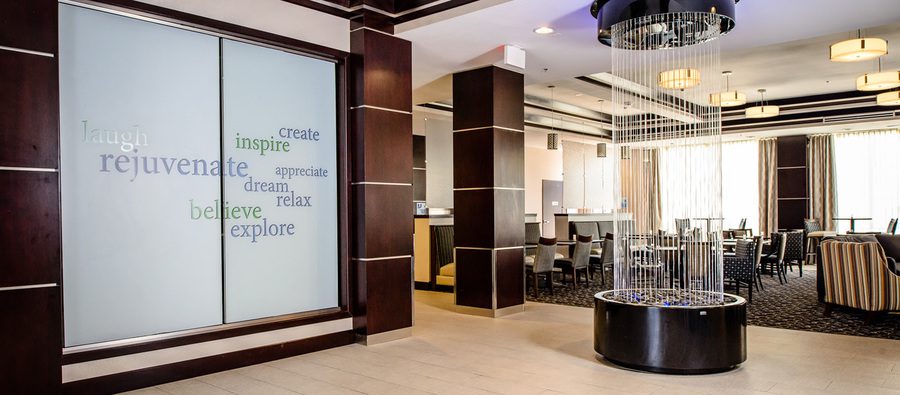
“Fast forward four weeks later during my contract hire, and somehow I took them to keep me, and they really gave me a lot of unique freedom to kind of utilize my skills and expand upon them. To create something from the ground up. They had never invested in marketing before, you know, it was always direct sales. It was always in the revenue management piece. But that little marketing arm was kind of missing.”
“I was the lucky person, I took a chance on them, but they totally took a chance on me. And now we’re here, and we actually rebranded in December of last year to Pathfinder Hospitality because it’s the more global message of what we’re trying to do in the hospitality sector. So, it’s been a wild journey to get here, and I always say I can’t even believe I got a job in hospitality during the pandemic. I just fell in love with this industry the second I started working in it.”
Pathfinder’s purpose and empowering creative staff
Those who know Pathfinder’s purpose might define it as unique, especially for a hospitality business. She explained the story and the purpose of the company…
“For sure. So, about seventeen years ago the Co-owners of our company — who are currently our managing directors and are still very much involved. We have the first fourteen, which are our two managing directors, our VP of operations and our head of business development and Partnerships.”
“When they got together seventeen years ago, their hope was a lot of people are doing hospitality, but how can we do it differently and truly do it differently? What does that look like? You want to put a better imprint on the industry and you don’t have to be massive to do that. We’re a smaller company, but I always say we’re small but mighty”.
“We provide career opportunities, not just paychecks. If people want to get more involved. On day one we are told: ‘Yes, the guests are the number one importance. Our clients are amazing, but our team and our employees also have to come first’. So we kind of use the term internal and external guests and they all need to be treated with the same level of respect, appreciation and everything beyond that. I think, like you said building it from the inside out. It starts with the culture and it starts with setting that tone.
In terms of future growth, the hotel company is optimistic about expanding.
“Yeah, so we’re running a very exciting period of growth right now. We lost a couple of hotels during the pandemic, like a lot of management companies, but in the last six months, we’ve also added three or four properties. We’ve put a big emphasis on bringing that Pathfinder difference to every asset that we take on. We are opening up to other asset classes.”
“We do what we do so well; maybe we can make an impact on other branches of hospitality. And the bigger vision is: what does that look like in the next year or the next five years? We have a really positive pipeline right now of new hotels that are really wanting to break out of Texas. We’re currently only in Austin, Houston, and San Antonio, and we’re looking to go beyond that.”
“So the growth plan is to really, you know, align with other hotel owners and managers and say, ‘Hey, we’ve done the owner-operator thing, the third part thing because we understand both worlds. Let us help you run your business successfully.“
Cultural Vision and Growth can walk together
How we can combine a very unique cultural vision with growth? By tapping into the interests and skills of current employees.
“I think there has to be a beautiful marriage between planning but also being flexible. So the more you plan, the more we’re able to be flexible at the moment. Obviously, I am the director of Marketing. I’m always thinking about when we take on a new asset. What does that look like? And I don’t believe in cookie-cutter marketing tactics. I don’t believe in a one size fits all approach. I don’t believe in any of that. I think, at the end of the day, every asset, whether it’s a hotel, whether it’s multifamily, whether it’s senior living, has its own personality. So the first thing I do is dive in and I do a very customised marketing strategy.”
“Like, what is the town? What is the voice? What is the market? What’s around there? And from the inside out, you find people at ground level. One of the unique things we do is have a lot of various committees that line-level employees and every corporate employee. Everybody is encouraged to participate. Just because you’re a front desk agent doesn’t mean you can’t be a photographer for our committee to get us content. “
“So, really, the growth plan there is to take that on instead of saying, ‘Oh my gosh, we have to hire, hire, hire’, which is true in this market. But how about playing to the strengths of the people who are loyal to the company? I’ll talk to them. Ask them. Do you like taking pictures? Are you interested in video? Are you interested in social media, which is a huge part of the business right now? And get involved and nurture those passions, because that could be your next marketing coordinator. I mean, it’s always good to hire externally too, but you might have exactly what you’re looking for right in front of you.”
Some argue that we can’t expand any further as it would dilute the culture. The Marketing Director explains if this is a typical conversation at the director level as the company grows.
“Absolutely. I’m very lucky to kind of be plugged in with the leadership team, and we don’t want to talk in caps. We don’t like to say, ‘Oh, we stop here’. No. But as we’re doing it, we’d like to be very attuned to communicating with each other and say, ‘Okay, for the next three months, if we have five potential hotels, how do we plan for that?’ Because we never want to lose that. We call it the Pathfinder difference, which is the marketing difference, sales difference, and revenue difference. We have amazing department heads and all of this with a director of people and culture who is the keeper of that. So we’re always in constant communication as we grow to make sure we know what kind of help everybody needs to make sure we don’t lose the quality.”
Highlighting the Brand Culture
Miller explains that the first look at the brand’s culture begins with initial training, which includes descriptions of the five commitments and how the new staff may support the business. That’s the first step to empowering creative staff.
“Every time we bring on a new group of frontline employees, whether they’re in Austin, Houston, or San Antonio (kind of regionally), part of their onboarding is not just the FISH! training, which we will dive into. We also give them an overview of what we call the five specialty areas, or committees. One being marketing and social media. There’s a slew of things that fall under those responsibilities, and it’s on a completely volunteer basis. Some for copywriting and writing social media calendars. Some of them are taking photos, videos, and boomerangs, and they’re trained on how to interact not just with the team behind the scenes but with the guest. We get so many really good guest photos that are very organic, and we make sure we get their permission to use them. They are the most engaged posts on social media.”
“We also have a speciality area around administrative work and operations. We call them smooth operators, and that is for employees or any employees that are really interested in the ordering piece of it. The purchasing piece of inventory. Keeping things straight, you know, maybe some accounting builds. We also have a culture committee. I mean, no committee is dedicated to keeping the culture; the responsibilities are divided up between employee appreciation. We’re always trying to celebrate everybody’s birthday. We actually use an internal social media platform called Beekeeper, and this actually allows all the teams across the portfolio to stay connected, and they’re encouraged to post their wins, their celebrations, their holiday parties, and things like that.”
“You know what this is? It is what keeps everybody connected, as it is very engaged. So they brought it back as soon as people said how much they listed, and so with that, you know, you’ve got a lot of opportunities for people to jump into, and they’re doing hands-on work.”
“What do you want to learn? How can we train you, and how does it add to your career growth and your daily job? That’s why people are so excited to show up for work because we are hoping to enrich their lives with career opportunities.”
Miller discusses the excitement of fostering creative passions as part of the company culture.
“I would say they get really excited. I’ve heard some say, ‘What the heck? I’ve never heard of this‘. It’s very unique to your company’s culture. In my personal committee, which kind of focuses on areas of marketing, I have a lot of analytical and operational people who don’t realise that they have this creative side until they know that there’s a safe place to go and do it. I have people in the operations that are copywriting.”
“They get so excited because they’re being engaged with, and it’s just another form of recognition to say, ‘Hey, you’re not just a one-dimensional line-level employee’. There’s so much more to all of us, and we want to nurture those passions. And sometimes they’ll join the committee, but it’s not really what they want.”
“So it’s a very volunteer base. It’s very based on their needs and their interests.”
“We need everybody in those speciality areas, but we want to make sure that it’s enriching their lives and not just our personal needs.”
“We train our employees to look for these opportunities. We get to know the guests and the people, and we also give them autonomy. We want them to feel comfortable throwing some kind of employee appreciation party without having to get some kind of budget approved. At the end of the day, budgets are important, and numbers are important because they contribute to the bottom line. Fine, but we also don’t want people to feel restricted so that they can’t celebrate their teams and their wins without being punished.”
Core Values and how they deliver results
Transparency is one of Pathfinder Hospitality’s core values, as she explains…
“Well, that’s where I get any very unique thing that we do. Transparency is one of our core values. Every quarter we host some sort of town hall or company meeting, and the numbers are a part of that conversation. Because the teams also need to know if their hotels are not doing well and what needs to be done. What’s missing? Where are the holes? What’s happening? So open and honest, transparent conversations have to happen because we’re also running a business at the end of the day, and our business is people.”
“I think sometimes we talk about things to death, but that’s totally okay. Because It makes everybody at every level feel like they’re being heard, and it’s really important for leadership to make themselves available.”
“I never thought stepping into this role I would get so attached to some of these teams. They’ve just inspired me every single day, and I get so excited when I see their wins and can help them celebrate them by putting on a higher platform.”
“When you feel appreciated, you’re going to do more for your company.”
The FISH! approach is the secret (or not-so-secret) ingredient in all of this.
Miller explains how they implemented the approach at Pathfinder Hospitality Hotels.
“Absolutely. So, you said you were familiar with FISH!, but for those who aren’t familiar with FISH!: ChartHouse FISH! Philosophy is based around Seattle’s Pike Place Market. And it’s actually about these men and women who worked in the fish place. And it’s probably not the most glamorous job, but they decided, ‘Let’s make the most of it’.”
“So the four principles are: Play, having fun in the workplace without being childish. Be there, understanding that you have to show up for people. Listening when someone just needs to be heard. It could be as simple as seeing somebody down, and if that’s out of your purview, just taking the time to say, ‘Hey, are you ok?’. Choose your attitude, which could probably be the hardest one for a good chunk of us, and then make their day. We are in hospitality. If you’re not making someone’s day—just one person’s day —every day, what are you doing? So that training is something we do in the first few weeks of any employee onboarding.”
The impact of FISH! training is immediately apparent following the initial onboarding phase.
“Well, what happens is that I actually did a lot of the FISH! training. I’ve led quite a few of them, and one of the little things that happen on that day is that we give them a name card and we say, ‘Don’t put your name; put how you’re feeling’. Right? So a lot of people say ‘intimidated, ‘nervous, or ‘easy’. We want them to be honest. How are you feeling going into this? Because it’s foreign to a lot of people. And then at the end of the day, we say, ‘Take a look at your name tag; now say one word you’re feeling’. And almost always—not always, but almost every time I’ve ever seen someone say something negative, the tone sets to ‘I’m so excited and thrilled’. You’ve got them saying things like ‘I’m feeling spicy now’ and ‘I’m ready to go’. Yeah.”
“We do this thing called play storming, and we call it brainstorming on steroids. And no idea is too crazy. So that sets the tone for the people to come to the table with ideas. And it might be a crazy idea, and we might not be able to execute it fully early on, but what’s the bass in it? And how can we nurture that? We just don’t want anybody to ever feel like they can’t come to the table with amazing ideas that will enrich the hotel and obviously drive rates. You know, we have a big emphasis on valuation, too. There are so many things that we do differently because they can drive rates, and we can be great leaders because of this. So and it starts with that tone; it starts to signify that no idea is too crazy.”
“And actually, during the pandemic, when I say I’m shocked that I even got my job during the pandemic, The reason I got my job is that the company decided during that time period when it’s so dark and you’re hearing the word ‘no’, ‘no’, ‘no’, ‘no’, ‘no’, ‘no’. They were like, ‘How can we safely say yes? How can we get creative?’ With that and all these play storms later, as I was onboarding with the company, they were installing pergolas outside or investing in national holiday calendars so they could do safe activities. Whether it’s early morning yoga in the dockyard or stuff like that, it was just a really big breath of fresh air during this really dark period of time. We are all going through this.”
The hotel management company also has strategies in place to keep customers interested while they are staying at the hotel.
“I love this. Because one of the things that we encourage. In one of our speciality areas, we call them our Platinum Service Heroes, and their whole responsibility as part of that speciality area is to think outside the box. One of the things that happened during the pandemic was that we saw a lot of hotels cut things like hot breakfast and their social hour mixes.”
“The first thing that they look at on your website is, ‘Do you offer a free breakfast? If I don’t want to leave the hotel Things like that. But on the flip side, the platinum service heroes look at it from a month’s perspective. They look at the national holiday calendars and they think, How can we get people engaged and come down to our public spaces and, you know, get to know the other guests and the teams?”
“Our Best Western Plus Pflugerville Inn a couple of months ago did this national pickle day, and the GM went to the grocery store and bought a bunch of those big pockets of pickles, and you got guests tagging us on social media saying, ‘Oh my goodness. I’ve never seen a hotel do something like this’.”
“We’re trying to kick up a notch, and I always have a phrase: You can go on a budget; a lot of these really little nuances don’t have to cost a lot of money. They really don’t. You can get a lot of organic traction just by being excited. And again, it kind of goes back to FISH!. Choose your attitude. Show up for your people and just tell them how they can get involved because, more often than ever, they want to. Everybody’s craving human connection right now.”
How we can view difficult times as not only purely hard times but also times that may bring positive outcomes?
“I’m actually seeing a lot more kindness at these ground levels. And I think another positive thing is that you’ve got a lot of people that you know are struggling and are trying to find their purpose. And it’s starting new conversations. It’s actually starting a wave of creative thinking.”
“I think the hospitality industry was cruising for a little while. And then you’ve got something like this. The positive thing is, how do we plan for something like this again? Do you even plan for something like this again? What does that even look like?”
“And I think it’s actually okay to talk about it. I think it’s okay to say that really dark things are always going to start just before dawn. It’s one of the most cliche sayings, but I think the future is really looking bright, and it’s because of this new way of thinking.”
The Pathfinder application of the FISH approach is an excellent example of how businesses are overcoming both small and large challenges. It’s important to acknowledge the difficult times and recognise that they can lead to growth and positive change. We can use these experiences to inform our future decisions and approach challenges from a new perspective.
Do you like our content? Share with a colleague!
